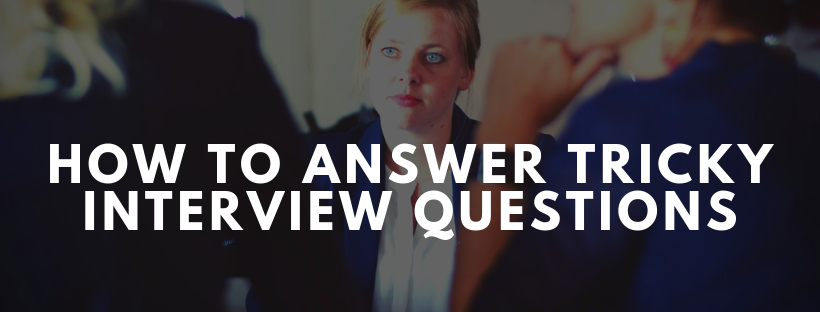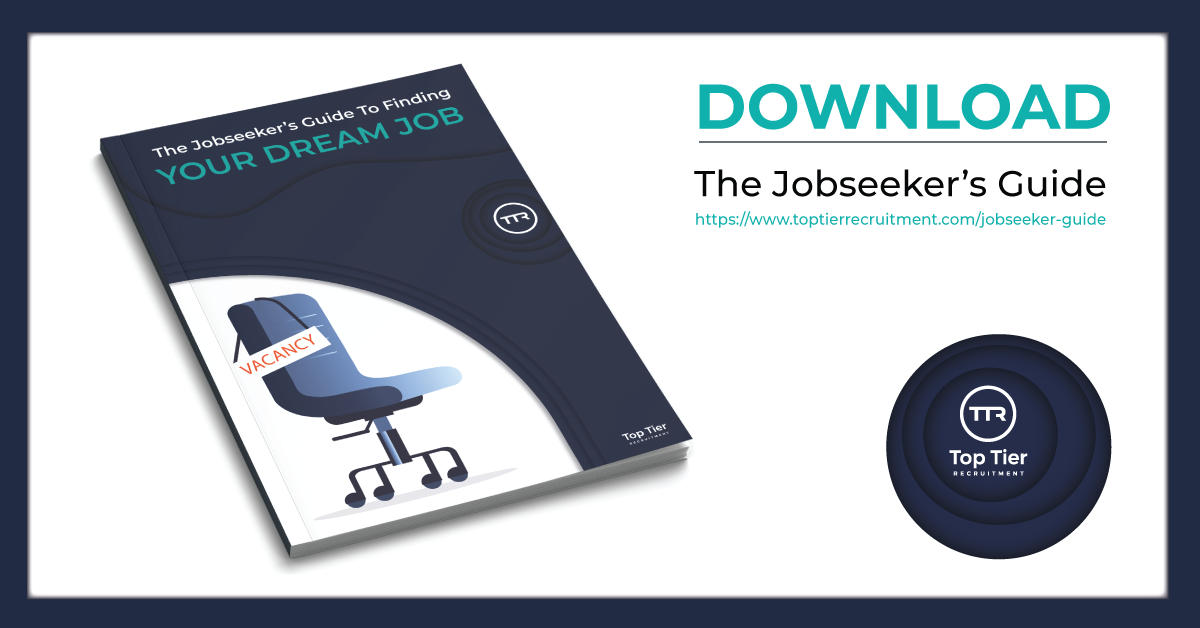How To Answer Tricky Interview Questions

In this helpful episode of the Your Pursuit Of Happiness podcast, Laura & Paul help you answer some of the most difficult questions you're likely to be asked in your next job interviews.
But first . . .
While You're Here: Get The Jobseeker’s Guide To Finding Your Dream Job
Want some extra help to land the job of your dreams? 
The 'Jobseeker’s Guide To Finding Your Dream Job In Ireland's Financial Services & FinTech Industries' will help you put a plan in place to secure your dream job. You’ll know how to prepare well, how to ace those interviews, and how to handle the next stage.
You can download the free Jobseeker's Guide now.
Podcast Discussion
Ok, let's get into the discussion . . .
Today we're going to talk about interview questions, specifically trickier interview questions to prepare for.
A little while ago, we published a blog article, Six interview chat-up lines to be prepared for. The article covered the trickier types of questions that you might expect to hear.
- What do you know about our main competitors?
- Why do you want to work here?
- What was your biggest achievement was in your last role?
- What are your salary expectations?
- What would your current or previous colleagues say about you?
- Where do you see yourself in five years’ time?
Let’s look at the questions.
Main Competitors
We always ask people when they interview with us, or anywhere else, or any other place we’ve worked, who would you say are your main competitors?
You can see in someone’s face if they haven't done the research, their face just drops, and you get random answers or big names that everyone's aware of.
It's a really simple one to do, and to box off. It's 5, 10 minutes research, just for names. If you want to go further you should, but 5 or 10 minutes on that is straight forward.
Do a little bit more research on a company because it demonstrates that you've put the time into it, which demonstrates effort, which demonstrates your keenness on the role.
Why Do You Want To Work Here?
This is something we would ask people when they come to interview with us, and again, it is around the research aspect.
Go beyond a website or the company’s core values if you can. Who do you know in a company? Who do you know who knows someone in a company? Can you talk to someone?
There's nothing more impressive than someone who's done the research, and done the groundwork, and is prepped for an interview.
It's all about understanding the company's background and understanding where they're going.
Go beyond the website - Google news articles about them, if the CEO or whoever's been on a podcast, or done a video recently, or anything like that.
It's two-fold; it demonstrates to the interviewer that the interviewee is genuinely interested; it's also a good opportunity for the interviewee to properly research the company, and make a more informed decision.
Your Biggest Achievement In Your Last Role
People struggle a little on this one.
In any role that you do, you should have some form of achievement.
Employers are always looking for someone who stands out in any way at all.
If you're in a junior role in trade processing, have you done anything where you've improved a process?
Did you do any research, outside your current role?
Did you run any projects?
Were you heavily involved in part of a project where it was up to you to deliver?
The more senior the role, the bigger the achievement needs to be.
Again, it's kind of prep work and it's knowing your CV - thinking about your background and what you've done.
Salary Expectations
It's an awkward one.
We generally ask candidates to try not to discuss salary at the early stage, because the salary should always be secondary, certainly in the mind of the interviewer.
If you're working with a recruitment consultant, the salary piece should be covered off. We should have an idea of your expectations, have an idea of where a role is pitched.
But a job should be about more than just money, obviously - that is really important.
Employers don't necessarily want to see someone who's talking about salary a lot or giving the impression that it's their end goal.
So, what’s a standard answer for current salary? Is it's more about the role and the opportunity. You can disclose where you are currently but it’s too soon to get into negotiation around salary.
What Would Your Current Or Previous Colleagues Say About You?
This is a different way of asking your strengths and weaknesses.
We’ve seen people being asked this and we’ve asked it too.
You almost see someone pause to think, almost as if they have to tell you the truth because you're going to go off and ask colleagues.
It's one of those questions where it's really about knowing yourself; knowing your strengths and weaknesses, and again something you can prepare for.
Where Do You See Yourself In Five Years’ Time?
People can get really awkward about this question.
We don’t use this question.
The standard answer should be something along the lines of progression within the organisation or similar, but it's one that if you haven't thought about it, it will really stump you.
You don't need to give a very definitive answer, just give thought to where you'd like to go, or the direction that your career will go. Ideally, it should be aligned to the role that you're interviewing for and the company that you're interviewing for.
People used to answer with, "I want to be sitting in your chair," or something like that - it's not really the best response.
Have a think about where you want to go, why is this job important to you in that next step? What's it going to bring? How can you see it being useful for you in terms of your longer-term career goals - be honest.
Does this role, does this company give you the potential to fulfil your aspirations? If it doesn't maybe the interview chair is not the right place for you to be is sitting.
Need Help?
If you want any information or are interested in one of our roles in the Fintech and financial services industry, get in touch with us at Top Tier Recruitment.
You can contact us at info@ttrmail.com or call (01) 564 9602.
If you need further help with your career and interested to learn more about career coaching, visit Possible Coaching today to arrange a introductory call!